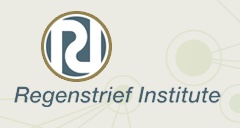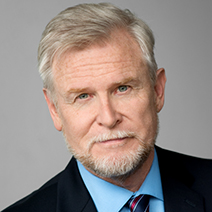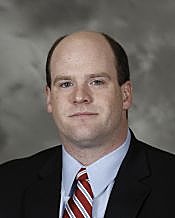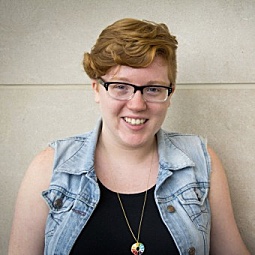Indiana Researchers Hope to Make Existing Social App Effective to Support Alzheimer’s Caregivers

More than 15 million unpaid caregivers around the world are estimated to provide daily care to people living with Alzheimer’s disease, usually without much outside support and often at risk to their own health and wellbeing.
 A collaborative research team at Indiana University-Purdue University Indianapolis (IUPUI) co-led by Assistant Professor David Wilkerson at the Indiana University School of Social Work, was awarded an
A collaborative research team at Indiana University-Purdue University Indianapolis (IUPUI) co-led by Assistant Professor David Wilkerson at the Indiana University School of Social Work, was awarded an  innovation grant by the Regenstrief Institute, a 501(c)(3) informatics and healthcare research organization established by philanthropist Sam Regenstrief on the IUPUI campus in 1969.
innovation grant by the Regenstrief Institute, a 501(c)(3) informatics and healthcare research organization established by philanthropist Sam Regenstrief on the IUPUI campus in 1969.
The grant is to fund research into technology innovations for mediating support and self-management of caregivers for people with Alzheimer’s disease and other forms of dementia. The study will focus on whether a social “microvolunteering” app developed by Facebook can be effective in providing the supporting that many Alzheimer’s caregivers currently lack. The research team hopes to have an answer to that question by early fall.
 Wilkerson also works with the online MSW Direct program, where he teaches and leads a team that manages program course design and development. His main areas of interest are telebehavioral health social work education and practice, and his work in that field includes collaborative research and development of a telehealth practice course series. In the area of telebehavioral social work, Wilkerson’s interest in online practice is a result of his previous clinical work, which includes caregiver family psychoeducation and online group work.
Wilkerson also works with the online MSW Direct program, where he teaches and leads a team that manages program course design and development. His main areas of interest are telebehavioral health social work education and practice, and his work in that field includes collaborative research and development of a telehealth practice course series. In the area of telebehavioral social work, Wilkerson’s interest in online practice is a result of his previous clinical work, which includes caregiver family psychoeducation and online group work.
 The IUPUI team also includes Dr. Daniel Bateman, an assistant professor of psychiatry and gerontology psychiatrist with the IU School of Medicine, a scientist with the Indiana University Center for Aging, and a Regenstrief Institute Investigator.
The IUPUI team also includes Dr. Daniel Bateman, an assistant professor of psychiatry and gerontology psychiatrist with the IU School of Medicine, a scientist with the Indiana University Center for Aging, and a Regenstrief Institute Investigator.
 The team’s third member is Erin Brady, an assistant professor of human-computer interaction at the School of Informatics and Computing at IUPUI.
The team’s third member is Erin Brady, an assistant professor of human-computer interaction at the School of Informatics and Computing at IUPUI.
The trio of researchers met through their respective participation as members of the Sandra Eskenazi Center for Brain Innovation eHealth group and decided to join forces and pool their efforts in exploring the possibility that a social microvolunteering application could aid Alzheimer’s caregivers.
“It is important not to lose sight of the person and their family when someone develops a brain illness,” Bateman said. “I work with persons with cognitive impairment, major neurocognitive disorders — dementia, Alzheimer’s disease, older adults with mental illness, and family caregivers. Helping patients and families navigate the complexities, treatment options, course and current medical understandings of neurocognitive disorders and mental illness are among the aspects of my work I find most rewarding. Improvement in how we deliver healthcare to older adults with brain illnesses is one of the focuses of my research.”
The social microvolunteering app developed by the team communicates with a Facebook community and is able to push and retrieve information to and from the entire community or only to user-selected groups within the community. The team describes social microvolunteering as a simple form of volunteer service usually conducted virtually through social networks and requiring no long-term time commitment.
For example, the network connects an individual posing a question to a group of people who will potentially answer, leveraging the social networks of a core group of supporters to expand the range of potential answerers available and increase response speed.
Brady originally developed and researched the social microvolunteering idea in an application for people with limited vision, while Bateman’s background of experience working with patients and families helps the team understand the needs of caregivers. Wilkerson’s research interest is focused on patient-centered care and creation of a holistic care environment that includes caregivers and strengthens the caregiving resource.
The team noted that if their research project shows the social microvolunteering application approach is effective, it could prove an inexpensive means of providing support to millions of caregivers, with the number of unpaid caregivers trying to juggle the demands of maintaining their own lives while caring for loved ones with Alzheimer’s disease estimated at a staggering 15.7 million in 2014, providing a total of 17.9 billion hours of care, according to the Alzheimer’s Association.
They cite data from other research studies revealing that providing this overwhelming volume of care results in problems of its own, with caregivers manifesting higher rates of depression, anxiety, insomnia, cardiovascular disease, and healthcare resource use, rendering caregiver self-management an important target for intervention.
Wilkerson notes in a IUPUI release that the team will investigate small groups of five to eight caregivers, providing each group with a Facebook account. Groups will be asked what informational and emotional support questions they would like answers for in alternating weeks of the research. That aspect of group discussion is anticipated to be an initial step in development of mutual support and is expected to generate questions that can be pushed to the larger Facebook community for social microvolunteering purposes.
As the social microvolunteering app retrieves answers to questions, and relevant answers are sent back to the caregiver group for discussion, groups of online caregivers will be able to discuss online which answers seem most relevant and act on them. Wilkerson explains that caregivers will be able to authorize, through their Facebook page, use of the application during the test period.
The team anticipates recruitment of 24 to 26 study participants, who will be divided up into four groups by the end of April, with the project to begin in May.
“If our intervention can increase support, it can potentially improve caregiver health and, in conjunction with primary healthcare interventions, extend the amount of time that people with Alzheimer’s can remain at home,” Wilkinson said.






